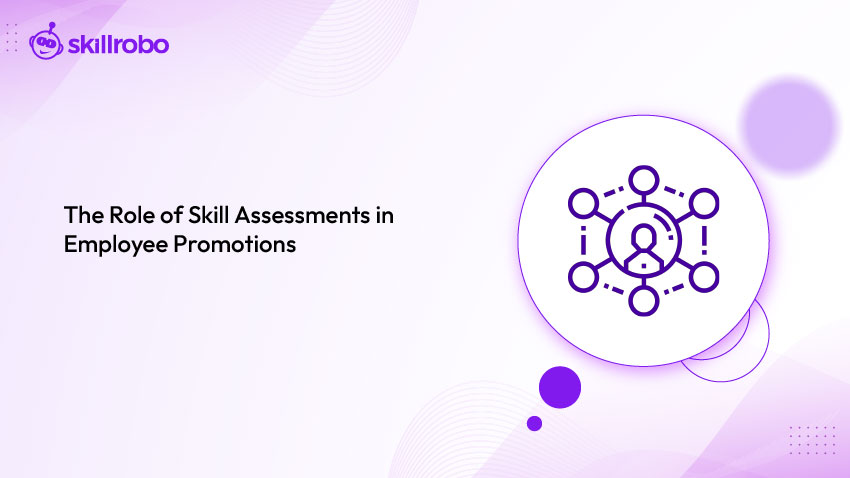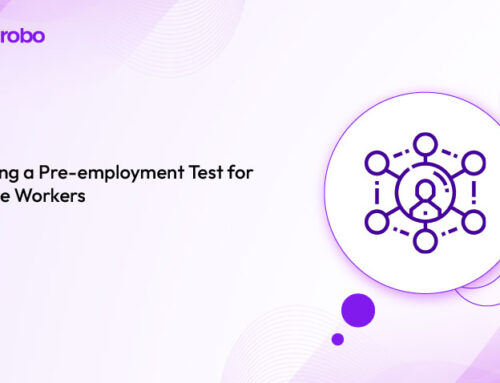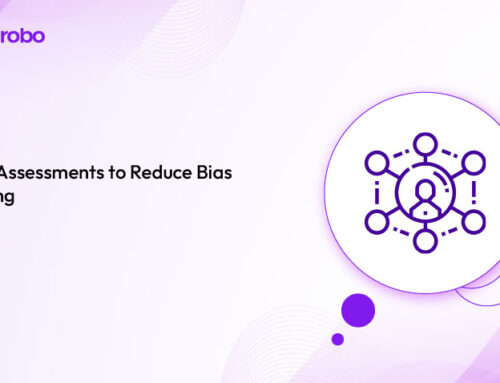
Key Takeaways
- Skill assessments bring objectivity into promotion decisions, helping organizations evaluate employee readiness based on data, not assumptions or tenure.
- Assessing technical and behavioral competencies ensures role alignment, especially for leadership and cross-functional positions.
- Promotion readiness assessments help organizations reduce performance mismatches, lower turnover, and boost long-term team productivity.
- Transparency and fairness in promotion processes increase employee engagement and foster a culture of internal growth and trust.
Why Skill Assessments Are Crucial for Promotions
Promotion decisions should not be based on assumptions or gut instincts. A structured assessment process helps companies evaluate actual capabilities, ranging from technical proficiency to leadership potential. Here’s why skill assessments are essential in modern promotion practices:
1. They Ensure Merit-Based Decisions
Promotions should reflect an employee’s readiness to handle greater responsibility, not just their time in a role. Skill assessments provide measurable insights into critical competencies, such as strategic thinking, problem-solving, collaboration, and adaptability. By replacing subjective evaluations with objective data, companies can ensure that only the most qualified individuals advance.
This merit-based approach reduces favoritism and internal politics, allowing employees to trust the promotion process. It also encourages high performers to stay engaged, knowing that advancement is based on capability, not internal connections.
2. They Reduce Performance Mismatches
Promoting someone who lacks the necessary skills can lead to poor performance and a ripple effect across teams. Skill assessments help validate whether an employee is prepared to meet the demands of a new role, minimizing the risk of promoting someone unprepared.
This prevents unnecessary stress for both the promoted employee and their team and safeguards business operations from being disrupted due to leadership gaps. In the long term, it helps build a pipeline of leaders who are equipped to succeed from day one.
3. They Align Promotions with Organizational Needs
As companies evolve, the skill sets required for leadership roles also change. Assessments can be tailored to evaluate the competencies most relevant to the organization’s strategic direction, ensuring a better match between promoted employees and evolving business needs.
This allows HR teams to align workforce development with future business goals and digital transformation initiatives. Employees promoted through this approach are better positioned to drive innovation and lead teams through change effectively.
Stat Insight: According to Gallup, organizations that promote the right managers see 27% higher revenue per employee compared to those with poor promotion practices.
Key Areas to Assess Before Promotion
Different roles demand different abilities. Before promoting an employee, it’s important to assess their capabilities across various domains. Below are some of the most relevant areas to evaluate:
Role-Specific Technical Skills
Employees should demonstrate a clear understanding of the technical tasks and responsibilities of the role they are being promoted into. This could involve data analysis, systems thinking, operational planning, or subject-matter expertise, depending on the job function. Ensuring technical readiness helps maintain continuity and minimizes the learning curve when stepping into a higher role.
Behavioral Competencies
Leadership roles require more than technical ability. Traits such as communication, conflict resolution, emotional intelligence, and adaptability become increasingly important. Behavioral assessments help gauge how employees react under pressure, handle uncertainty, and influence others. These insights are vital for roles that demand team leadership, cross-functional collaboration, or stakeholder management.
Cognitive Skills
Higher-level roles often involve decision-making in ambiguous situations. Assessing cognitive capabilities, such as logical reasoning, strategic thinking, and prioritization, can provide deeper insight into an individual’s leadership potential. Cognitive assessments reveal how well candidates process information, make decisions, and solve problems under time constraints.
Cultural Alignment
It’s equally important to ensure that promoted employees uphold company values and contribute positively to the culture. Some assessments can include scenario-based questions or personality traits that align with organizational values. Employees aligned with the company’s mission are more likely to drive engagement and act as cultural role models for their teams.
Benefits of Using Skill Assessments for Promotions
When implemented correctly, skill assessments lead to measurable improvements in workforce quality, leadership pipeline development, and employee engagement. They help HR teams make informed decisions while building a performance-driven culture.
1. Improved Transparency in Decision-Making
Employees are more likely to trust a promotion system that’s rooted in data rather than personal bias. A transparent process builds trust, motivates high performers, and reduces internal politics around career advancement. This visibility also encourages employees to take ownership of their growth, knowing exactly what’s expected for upward movement.
2. Better Succession Planning
With insights into current employee skill levels and potential, companies can proactively identify future leaders. This helps avoid last-minute scrambles when critical leadership roles open up. A structured approach to succession planning ensures business continuity and prepares high-potential talent for future demands.
3. Enhanced Employee Development
Assessment outcomes don’t just guide promotions—they also highlight development needs. Organizations can use these insights to build targeted learning paths for employees aspiring to move into higher roles. This fosters a culture of continuous learning and equips employees with the tools to grow into leadership positions over time.
4. Stronger Retention Rates
Employees who see clear and fair pathways for advancement are more likely to stay engaged and committed. By providing clarity on what it takes to move up, assessments boost retention and reduce the risk of losing high-potential talent. When employees feel recognized and supported in their growth journey, they are more likely to invest in the company’s long-term success.
Overcoming Common Challenges in Assessment-Driven Promotions
While the benefits of skill assessments are clear, organizations may face challenges when integrating them into their promotion process. Being proactive in addressing these challenges is key to long-term success. Here’s how to navigate them:
Resistance to Change
Some managers may view assessments as unnecessary or feel that their judgment is being undermined. It’s essential to communicate the value of assessments as a supplement, not a replacement, for human insight. To ease resistance, involve key stakeholders early in the planning process and offer training on interpreting assessment data. When managers understand how assessments support fair, data-driven decisions, they are more likely to adopt them.
Assessment Quality and Relevance
Not all assessments are created equal. Choose tools that are validated, role-specific, and aligned with real-world job tasks. Irrelevant or generic tests can lead to poor decision-making and employee frustration. Partner with assessment providers that offer customization based on your role requirements and industry. Regularly update the content to reflect changes in job expectations or evolving business strategies.
Time and Resource Constraints
Introducing a new system may initially require more time or budget. However, long-term gains in accuracy, retention, and leadership quality often outweigh the upfront investment. Consider automation to reduce manual workload and focus HR efforts on decision-making and coaching. Many modern assessment platforms offer ready-to-use templates and integration with HR tools to save time.
Tip: For organizations new to this approach, start with one department or role as a pilot, then scale based on feedback and results. Early wins will build confidence in the process and help secure buy-in from leadership.
How Skillrobo Supports Assessment-Driven Promotions
Skillrobo simplifies the process of evaluating promotion readiness with AI-powered assessments tailored to specific roles and industries. With a robust library of skill-based, behavioral, and cognitive assessments, Skillrobo enables HR teams to create structured promotion criteria that align with business goals.
Its analytics dashboard provides clear, real-time insights into employee performance, readiness scores, and development areas—helping managers make data-backed decisions. Additionally, Skillrobo’s customizable test formats and secure proctoring ensure integrity and fairness throughout the process.
To learn more, explore how Skillrobo’s promotion assessments work and how your organization can benefit from objective talent evaluations.
Conclusion
Skill assessments bring clarity, fairness, and strategic alignment to one of the most important HR functions: employee promotion. By basing advancement decisions on real capabilities rather than assumptions, companies can build stronger teams, retain top performers, and prepare for future challenges.
This not only improves operational efficiency but also boosts employee morale, as individuals feel recognized and rewarded for their actual contributions. A data-driven promotion process also helps reduce bias and creates a more inclusive work environment.
As the workforce continues to evolve, organizations must adapt their internal mobility strategies. Platforms like Skillrobo make it easier to transition from opinion-based to performance-based promotion models, ensuring the right people move into the right roles at the right time. Investing in structured assessments today builds a more agile, future-ready workforce equipped to lead the business through change, innovation, and growth.
Ready to transform your hiring process? Sign up for Skillrobo today and unlock the power of data-driven recruitment.









